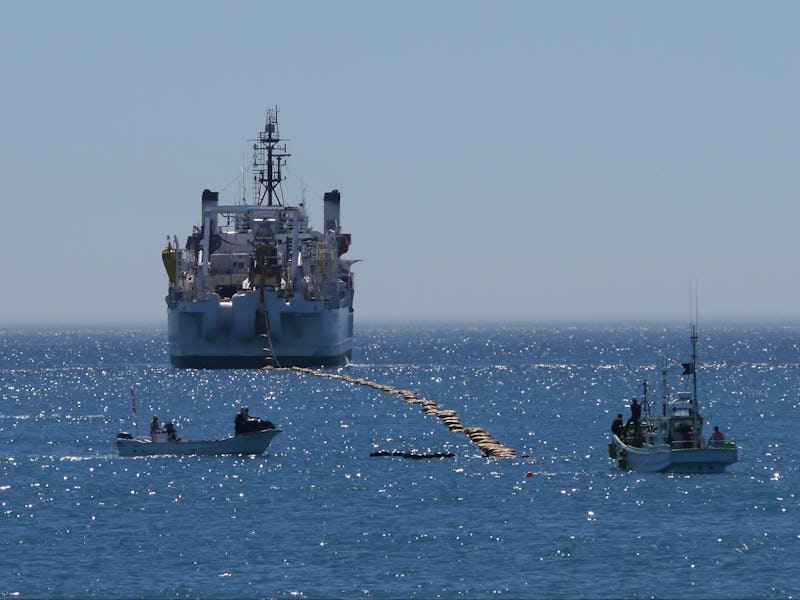Google's FASTER Undersea Cable in Numbers (and One Kanye West Joke)
$300 million, 60 terabyte per second, and now they're making "Stronger" jokes.

Historically, the majority of the submarine cables connecting Earth’s continents laid and maintained by international telecommunications companies. But the tech world is taking over. In May, Facebook and Microsoft announced that they would put a 4,100-mile cable along the bottom of the Atlantic. But Google — in the Googliest of fashions — has already done them one better. The company’s $300-million FASTER cable, which went live this week, is bigger, longer, faster, stronger.
The FASTER cable now connects America’s Oregon to Japan, transporting data at lightning fast speeds of 60 terabytes per second. Google already conquered the Atlantic back in 2008 with the Unity Cable and FASTER is an aptly named next step. Google wants the cable to help launch its new Google Cloud Platform in East Asia, and its grand opening gives them a total of four undersea connections to different parts of the globe, with more on the way. It wasn’t a solo effort — the FASTER consortium also includes several Chinese and international telecommunications networks, but Google got to claim the English-language credit when the cable came online on Thursday. They celebrated the only way any self-respecting internet company would: by tweeting out a Kanye West/Daft Punk joke.
By the numbers, the FASTER cable is one of the longest and strongest in the world. The FCC has recently decided to take better care of the undersea links between continents, but Google’s brand new line is pretty cutting edge.
We still have Daft Punk stuck in our heads.
Here are the specs:
- Speed: About 60 Terabytes per second, which means it could transmit about 12,000 Blu-Ray copies of Pacific Rim per second.
- Length: Somewhere between 5592 and 7226 miles, depending on who you’re asking.
- Maximum Depth: The Japan Trench is 34,600 feet deep, and the cable has to cross it somehow.
- Number of Shark Species Who Now Have Cable Internet: 34+ (on the American side, at least). This is more significant than you might think. Sharks love the internet. In particular, they enjoy chewing on it.
- Ratio of Illegal Downloads to Legal Downloads in Japan: 10 to 1, according to the Recording Industry Association of Japan. The new cable probably isn’t going to bring that down.
- Time Zones: Seven or maybe eight depending on the cable’s exact route. Take a look at a time zone map of the Pacific Ocean, it’s fucking bonkers.